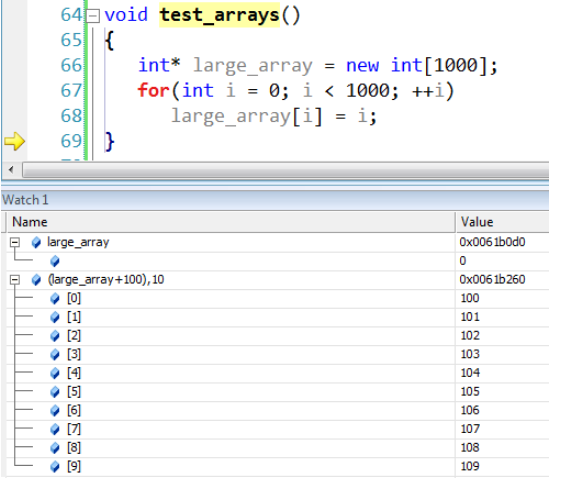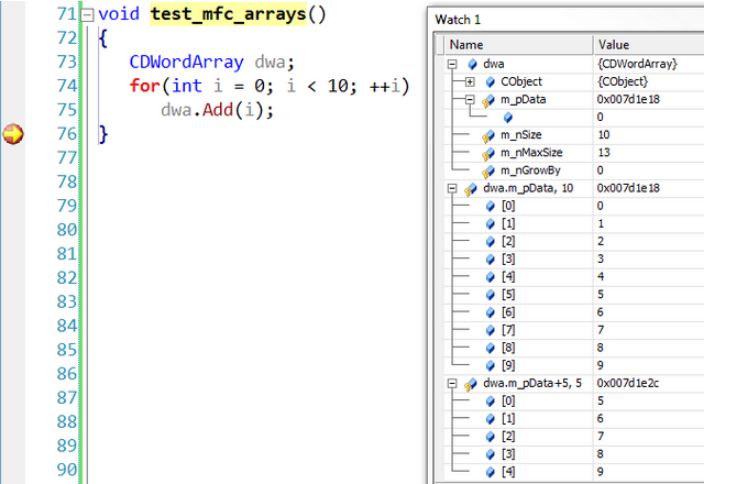If you expand a pointer and you only get a single item, just add ",n" to the entry in the watch window where n is the number of elements to expand.
For example, if you have a foo * pFoo pointing to an array of ten elements, put pFoo,10 in your watch window to see all of the element.
This can be useful to view parts of a large array.
If pFoo points to an array of 5,000 elements, you might use (pFoo + 2000),10 to see elements 2000 through 2009.
总结:
1、watch a particular range of <count> elements starting at the <offset> position (of course, array here is your actual object)
(array + <offset>), <count>
2、watch the entire array
array, <count>
示例:

If you work with MFC and use the "array" containers from it, like CArray, CDWordArray, CStringArray, etc., you can of course apply the same filtering, except that you must watch the m_pData member of the array, which is the actual buffer holding the data.
